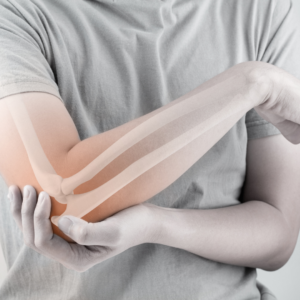
The ketogenic diet (keto diet for short) is a high-fat and low-carb lifestyle changer with many proponents. Diets low in carbs increase the body’s production of ketones, which it uses in place of glucose for energy. The keto diet doesn’t cut out the carbs entirely but drastically reduces them, with the intent of forcing the body to rely on ketones instead of carbs. It is one of the hottest diets right now, which provides healthy fats to the body, enabling people to lose weight, gain more energy, get clearer skin, and find mental clarity.
Although ketogenic diets are known for providing a good energy boost, it’s essential to be aware that some people might still find themselves lacking energy despite following such a diet. They could be dealing with issues like lack of motivation, poor sleep, brain fog, or reduced libido. In such cases, it becomes crucial to dig deeper and identify the root cause of the problem. It could be related to professional or personal stress, any underlying disease, or even hormonal imbalances. For example, both men and women often grapple with low testosterone levels, which can significantly impact their overall well-being. In such cases, it’s a good idea to reach out to a doctor, undergo periodic blood tests, check hormone levels, and explore the right treatment options. The doctor may suggest medications or medical treatments like TRT Simi Valley or elsewhere, if needed to tackle the issue.
In other words, it is a balanced diet, coupled with identifying any health issues and receiving the right treatment, that supports overall health. However, some people may find the conditions of the keto diet too extreme to practice daily. Several others believe that Keto practically does nothing more than increase health risks. But what are these risks associated with it that are often being talked about in the media? Continue reading to learn about them.
Low-Carb Diets Tend to Result in Mineral or Vitamin Deficiencies
If you’ve ever been on a low-carb, high-fat diet, you may have heard that it could have some dangerous side effects, namely that it can lead to vitamin and mineral deficiencies. Low-carb diets generally don’t provide adequate amounts of protein, calcium, or vitamin D; these deficiencies could pose health risks over time. It can lead to diseases like osteoporosis and muscle loss. These conditions are quite serious and would require you to go to medical clinics and seek treatment for relieving osteoporosis pain or recovering muscles. So while it is important to have good dietary habits, overdoing them may have harsh consequences in the long term.
It may Affect your Athletic Performance
Ketogenic diets, which put the body in a state of ketosis, have been popular for their effectiveness in helping with weight loss, but recent research is starting to show that there may be a downside to it. Compared to athletes who do not follow a ketogenic diet, ketogenic diet eaters perform worse in sprinting distances and normal sprints.
Also, ketogenic dieters are known to have extremely high levels of blood sugar and insulin than others. The study authors suggest that this could lead to issues with insulin signalling, leading to poor athletic performance. Research also states that this diet can have an adverse effect on muscle recovery post workout or sports matches.
Relaxing the Rules can Cause Weight Re-Gain
Researchers and diet gurus have found the keto diet to be highly beneficial in weight loss. But what many people don’t know is that keto can be a double-edged sword. When done right, it’s extremely effective. However, when done wrong, it can cause weight re-gain.
Let’s for instance consider that you start practicing the keto diet while on a restrictive diet like intermittent fasting. In that case, you’re likely to gain weight, according to new findings published in The American Journal of Clinical Nutrition (AJCN). Researchers discovered that caloric restriction, in the context of intermittent fasting, can push the body to the verge of starvation. This “starvation mode” causes the body to hold onto fat in favour of energy.
It may also Damage Blood Vessels
As said earlier, the keto diet aims to force the body into ketosis, a state in which ketones-the body’s preferred source of energy-is produced in the liver. Moreover, when the body is deprived of carbohydrates, it turns to the fatty acids stored in fat cells, which force the liver to produce ketones.
According to a few doctors, when there is too little glucose, the body starts breaking down fat for energy. This leads to an increase in the production of ketones, which is not good for the body. Ketosis can damage the blood vessels; the harm to the blood vessels can eventually cause heart attacks and even strokes. That’s why it’s dangerous.
Remember that it might not be a good idea to make this a lifestyle. A small, preliminary study published in Nutrients suggested a cheat day on keto could actually make blood vessels more vulnerable. So, individuals should be very cautious before surrendering themselves completely to this “not-so-healthy” diet plan.
Too Much Fat Creates a Higher Risk of Developing Chronic Diseases
A new study shows that giving this diet a place in the fitness regime can raise your risk of developing diabetes, heart disease, and seizure. Keto diets increase the risk of cardiovascular disease because they raise the levels of LDL or bad cholesterol. It has also been found that this can increase mortality rates. People who consume high levels of saturated fat and trans fats are at higher risk for certain chronic diseases than those who do not. Conversely, substituting plant-based fats for carbohydrates improved mortality rates.













